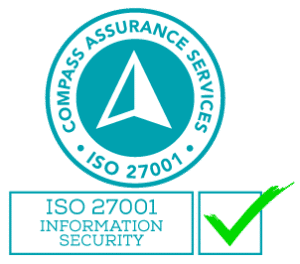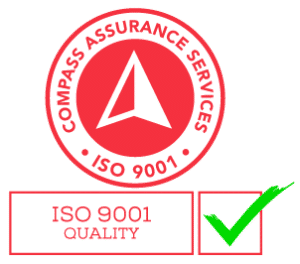Delays, cost overruns and safety concerns have long challenged the construction industry. Many of these issues can be traced back to gaps in planning, miscommunication on-site, or limited visibility across the project timeline.
Artificial Intelligence (AI) in construction project management offers a new way to approach these challenges: helping project managers make faster decisions and improving how teams work across the lifecycle of a project.
If you’re part of a growing firm or managing multiple builds across locations, knowing what AI can do (and what it can’t) can help improve outcomes on your next project.
Learn more: Optimising IT Infrastructure Management for Construction Hybrid Workforces
Why Construction Companies are Turning to ERP Systems
Small and mid-sized construction companies often face the same pressures as large firms, but with tighter budgets, fewer staff and limited resources. Managing operations without the right systems in place can lead to delays, cost overruns and frustrated clients.
Construction ERP systems are ideal for solving these issues. Here’s why they’re becoming a key tool in the industry.
Key Challenges ERP Software Helps Address
Without integrated systems, different parts of the business often operate in silos. This can result in:
- Inaccurate job costing due to inconsistent data from site and office
- Delays in financial reporting and invoicing
- Limited visibility across multiple construction projects
- Manual errors from duplicate data entry
- Poor coordination of labour, materials and equipment
- Time lost chasing updates from various departments
These inefficiencies they directly impact margins, cash flow and client satisfaction.
How ERP Software Improves Efficiency
ERP software for construction companies is built to manage and streamline operations more effectively. With all your key project, finance, and operations data in one place, you can:
- Track and control project costs in real time
- Allocate resources based on up-to-date schedules
- Improve project performance with better forecasting and planning
- Streamline approvals, documentation and compliance tracking
- Make faster decisions using real-time dashboards and reporting tools
- Enhance team collaboration, whether in the office or on-site
By using one system to handle everything from job costing to supply chain management, construction firms can reduce overheads, improve cash flow and deliver better results across their projects.
Learn more: 7 Cyber Security Tips for Construction ERPs
What to Look For: Core Features of Construction Industry ERP Software
Not all ERP systems are designed with the construction industry in mind. A general business solution may lack the tools and flexibility needed to manage site-based work, subcontractors, complex budgets or shifting project timelines.
When assessing construction ERP systems, these are the key features construction SMBs should look for:
1. Job Costing and Budget Management
Accurate cost tracking is essential for project profitability. The best construction ERP software will allow you to:
- Track actual costs against budget in real time
- Break down expenses by labour, materials, equipment or subcontractor
- Forecast future spend based on project progress
- Reduce the risk of budget blowouts with early alerts
2. Project Planning and Scheduling
Effective planning tools help you stay on track, even as project scopes or deadlines change. Look for features that support:
- Gantt-style timelines and task dependencies
- Resource scheduling across multiple jobs
- Progress tracking with visual dashboards
- Integration with mobile apps for updates from site
3. Financial Management and Reporting
Reliable financial reporting is critical, especially when you’re running several jobs at once. Construction-focused ERP software should include:
- Integrated accounts payable and receivable
- Automated billing tied to project milestones
- Payroll and timesheet tracking
- Custom reports for cost centres, departments or clients
4. Resource Allocation and Labour Management
Without the right people and tools in the right place, even well-planned projects can fall behind. ERP systems help:
- Assign labour and equipment based on availability and project needs
- Manage subcontractor agreements and performance
- Ensure compliance with licensing and site safety records
5. Procurement and Supply Chain Management
Whether you’re managing supplier relationships or trying to avoid material delays, a good ERP platform can support:
- Centralised procurement and purchase orders
- Inventory tracking and warehouse management
- Supplier performance analysis
- Real-time updates on material costs and delivery timelines
6. Seamless Integration and Accessibility
An effective ERP system should connect easily with your existing tools, including estimating software, payroll, and accounting systems. Cloud-based options also provide:
- Remote access from site or office
- Automatic updates and data backups
- Improved collaboration across teams and departments
Choosing the Best Construction ERP Software for Your Business
There are many construction ERP software options available, but not all of them are suited to the needs of small and medium-sized businesses. When evaluating your choices, focus on what will work best for your size, structure and existing systems.
Key Factors to Consider
- Industry fit: Choose a platform designed specifically for construction, not a generic ERP solution.
- Scalability: The system should grow with your business, handling more users and projects over time.
- Ease of use: Field and office staff should be able to pick it up quickly, with minimal training.
- Integration: Look for software that can connect with your current accounting, payroll, or estimation tools.
- Local support: Access to Australian-based technical support can make a big difference, especially during implementation.
Tips for a Successful ERP Rollout
- Involve key stakeholders early, including finance, IT, and project teams
- Start with a phased rollout to reduce disruption
- Prioritise data accuracy during the transition
- Invest in user training to encourage adoption
Finding the right construction ERP software for your business needs to be about fit as well as features. The right system should help your team work more efficiently, reduce errors, and ultimately improve how you deliver projects.
Learn more: Cyber Insurance: Why Construction Firms Need It
Next Steps: Find the Right ERP System for Your Business
For Australian construction companies, success depends on tight cost controls, people, timelines, and compliance. But managing those complexities without the right systems in place leads to delays, miscommunication, and costly mistakes.
If your business is assessing ERP options and you’re looking for a solution that fits the way your teams actually work—both on-site and in the office—Steadfast Solutions has years of experience providing construction companies with specialised IT support.
We can help you evaluate platforms, plan your rollout, and align technology with your business priorities. Talk to our team, and find the right solution.
FAQ
Construction ERP software is a business management platform designed specifically for construction companies. It integrates key functions (such as project management, job costing, budgeting, payroll, procurement and financial reporting) into one system. Unlike generic ERP solutions, it includes tools tailored to the needs of builders, contractors and construction project teams.
ERP software helps SMBs in construction streamline operations, reduce manual processes and gain better visibility across projects. Benefits include:
- Real-time job costing and budget tracking
- Accurate and timely financial reporting
- Better resource allocation and scheduling
- Fewer errors through streamlined workflows
- Improved communication between site and office
It also supports compliance, reduces delays and helps project managers make informed decisions faster.
The most important features for construction-focused ERP software include:
- Job costing and budgeting tools
- Project scheduling and progress tracking
- Financial management and reporting
- Payroll and subcontractor management
- Procurement and supply chain tracking
- Real-time dashboards and mobile access
- Integration with accounting and payroll systems
Look for a solution designed for construction, not just a generic ERP with add-ons.
Implementation time depends on the size of your business, the number of users, and the complexity of your current systems. For most small to mid-sized construction companies, full implementation typically takes between 2 to 6 months.
This may seem lengthy, but it includes initial setup, data migration, integration with existing tools, security configuration, staff training, and testing. A phased approach is often used to reduce disruption and ensure adoption across teams.
Yes. Most modern construction ERP systems are built to integrate with common tools used in the industry, such as:
- Accounting platforms (e.g. MYOB, Xero, QuickBooks)
- Payroll software
- Project estimation tools
- Document management systems
Before selecting a solution, it’s important to confirm that it supports integration with your current software stack. This will help avoid duplication and ensure a smoother transition.




